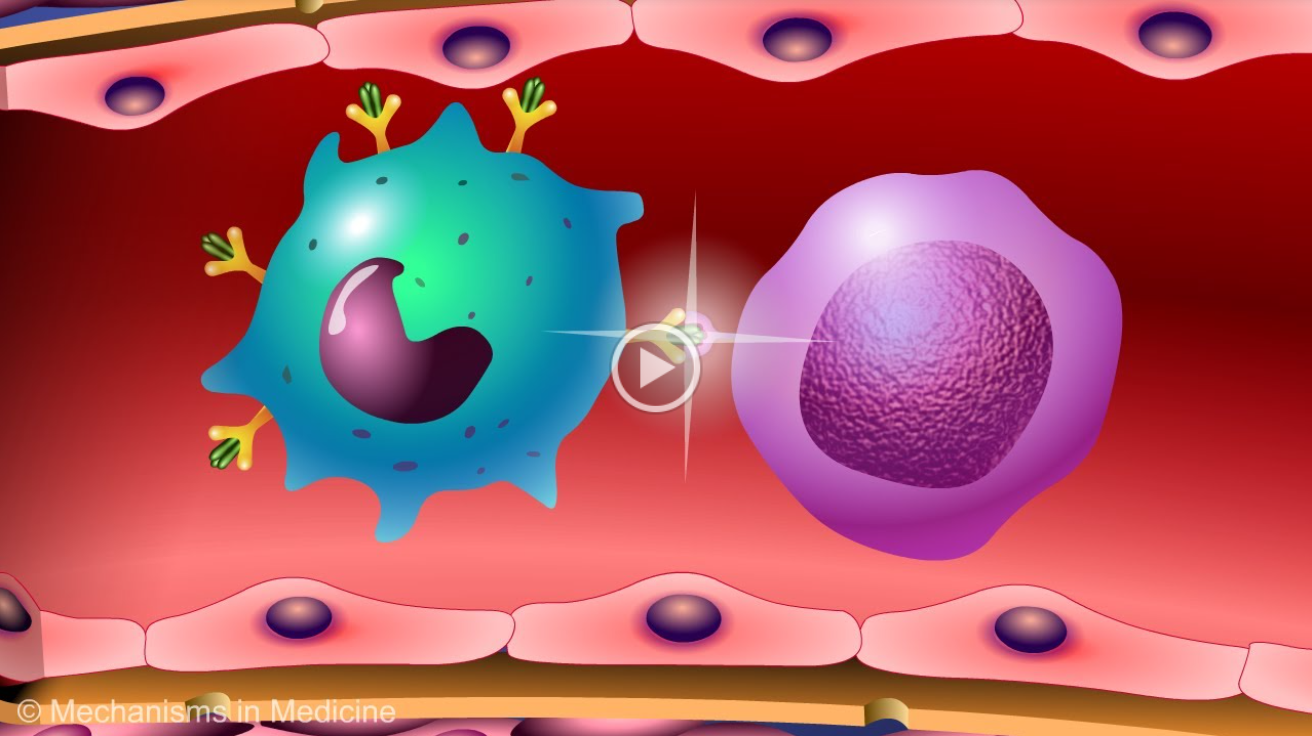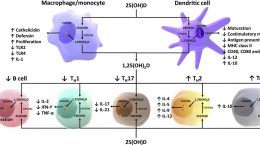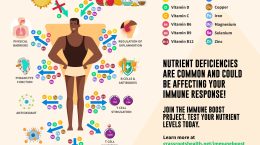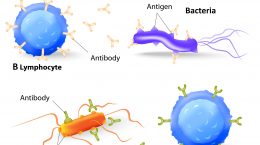Published on August 6, 2021
How vaccines work and why certain nutrients are necessary for maximizing their effectiveness
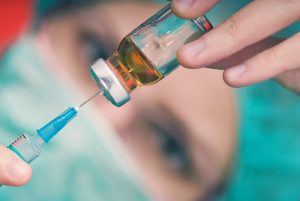 Nutrients have the ability to enhance our immune response. They can help strengthen our body’s first line of defense against pathogens through supporting the integrity of our mucous membranes, and influence the immune cells involved throughout the immune response, allowing them to be more effective in recognizing and fighting infections. Deficiencies in these nutrients have been associated with a compromised immune response and an increased risk of infection and disease, including COVID-19, caused by the severe acute respiratory syndrome coronavirus 2 (SARS-COV-2).
Nutrients have the ability to enhance our immune response. They can help strengthen our body’s first line of defense against pathogens through supporting the integrity of our mucous membranes, and influence the immune cells involved throughout the immune response, allowing them to be more effective in recognizing and fighting infections. Deficiencies in these nutrients have been associated with a compromised immune response and an increased risk of infection and disease, including COVID-19, caused by the severe acute respiratory syndrome coronavirus 2 (SARS-COV-2).
Deficiency in these nutrients can also compromise how our immune system responds to vaccination, rendering it less effective against a future exposure and attack.
In the words of Lai et al., “Micronutrients are indispensable in immune response of vaccination.”
What Are Vaccines and How Do They Work?
The following video explains how a vaccine works to stimulate the immune response to help the body ‘remember’ and recognize a specific virus in case of a future exposure.
Vaccines are administered to mimic a specific viral infection in order to prompt the body’s immune response and generate immune cells that will ‘remember’ specific components of that virus, so that the memory gained from the immune response to the vaccination can be used to quickly recognize and kill the virus if exposed to it in the future, before symptoms begin or get too bad.
There are three main categories of vaccines that are being used to combat COVID-19 specifically, which are discussed in the paper by Lai et al.: protein-based (using inactivated viruses and virus-like particles), gene-based (viral vector vaccines such as the mRNA and DNA vaccines), and combination vaccines (those that use both gene and protein-based). The mRNA vaccines prompt the cells to make antigenic proteins specific to the virus (molecules that initiate the immune response) which are then displayed on the cell surface to cytotoxic T lymphocytes, helper T cells, and B cells. These cells then prompt the immune response to generate antibodies that will recognize and destroy cells displaying similar proteins (the virus) in the case of a future attack.
How Do Nutrients Support the Response to Vaccination?
There are many aspects of the immune response that require specific nutrients, regardless of whether that immune response is due to exposure to a pathogen or induced by a vaccination. When your body doesn’t get enough of these nutrients, the immune system is compromised and may not work at its full potential.
The following are examples of how nutrients are involved in the immune response to a vaccine
Once injected, the components of the vaccine become introduced to specific immune cells, including macrophages, T-cells, and B-cells
Macrophages ingest and break down the particles from the vaccine (a process called phagocytosis), and use them to generate antigens to display on their cell surface. Vitamins A, C, D, E, and B12, zinc, copper, iron and selenium are important for all stages of phagocytosis.
T-cells bind to the antigen and become activated, transforming into cytotoxic T-cells, suppressor T-cells, and helper T-cells. Some nutrients of particular concern for T-cell function include vitamins D, C, A, E, B6 and B12 and folate, iron, zinc, copper, and selenium.
Activated helper T-cells generate antibodies specific to the viral proteins from the vaccine and use those to activate memory B-cells. Once the B cell is activated it divides into many sister cells, a process which requires folate, vitamin B6, vitamin B12, magnesium, and zinc.
B-cells then use the antigens to create and secrete lymphokines (chemicals that help direct the immune response). Lymphokines activate the proliferation of the B-cells into memory B-cells and plasma cells, which produce large quantities of antibodies specific to the viral particles induced by the vaccine. Some nutrients of particular concern for these functions include vitamins D, C, A, E, B6, B12, and folate, as well as iron, zinc, magnesium, and selenium.
Memory B-cells are generated to aid in the immune response if and when exposed to that virus in the future. In such a case, the memory B cells and memory T cells rapidly respond and the pathogen is often dealt with before an infection can take hold.
In Summary
Your immune system relies on certain nutrients in order to mount an effective immune response, regardless of whether it is responding to a vaccine or a live pathogen. Deficiency of any of these nutrients could hinder that response.
In the words of Lai et al., “to keep micronutrient balance is essential to alleviate morbidity of being infected by pathogens.” Are you getting enough of these essential nutrients?
Measure Your Nutrient Status
 Having and maintaining healthy vitamin D levels and other nutrient levels can help improve your health now and for your future. Choose which to measure, such as your vitamin D, omega-3s, and essential minerals including magnesium, selenium and zinc, by creating your custom home test kit today. Take steps to improve the status of each of these measurements to benefit your overall health. You can also track your own intakes, symptoms and results to see what works best for YOU.
Having and maintaining healthy vitamin D levels and other nutrient levels can help improve your health now and for your future. Choose which to measure, such as your vitamin D, omega-3s, and essential minerals including magnesium, selenium and zinc, by creating your custom home test kit today. Take steps to improve the status of each of these measurements to benefit your overall health. You can also track your own intakes, symptoms and results to see what works best for YOU.
Enroll and test your levels today, learn what steps to take to improve your status of vitamin D (see below) and other nutrients and blood markers, and take action! By enrolling in the GrassrootsHealth projects, you are not only contributing valuable information to everyone, you are also gaining knowledge about how you could improve your own health through measuring and tracking your nutrient status, and educating yourself on how to improve it.
Help everyone Move Research into Practice with vitamin D and other nutrients! As a special birthday gift to everyone, in honor of the science, we have created a special scholarship fund for anyone to donate to that will go towards helping others participate. Your donation will allow anyone to get help with funding their participation when they need it.
Text-to-give: Text Daction to 44321 to add to our Scholarship Fund.


